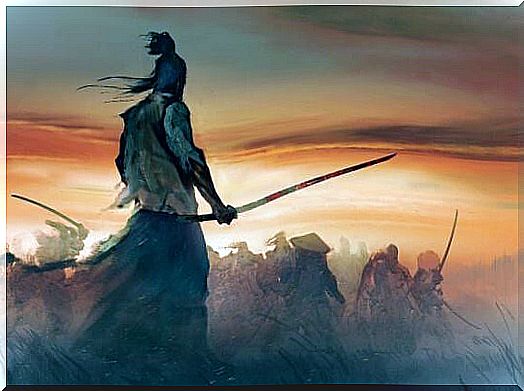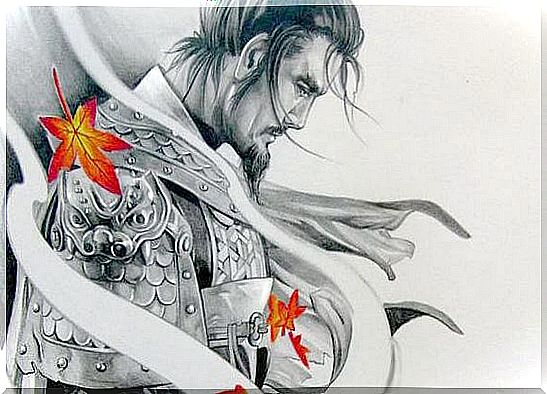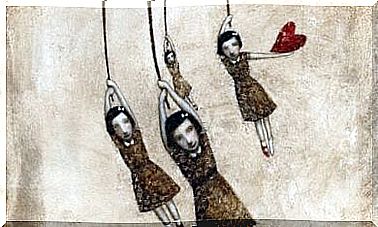The 7 Lessons Of The Way Of The Warrior

Japanese culture is very old and great importance has always been attached to fighting virtues. A Japanese fighter, unlike in other latitudes, has to represent high ideals in order to be considered worthy. The word “Bushido” speaks of this and is translated as the way of the warrior.
This way of warrior or bushido involves an ethic that the samurai used. It comprises a number of principles, but above all seven values that should determine behavior. It is said that members of the ruling class were taught this early on.
“Anyone can enter the tough battle and die. The farmer needs great courage for this, but the samurai makes the decision indifferently. For him it is essential to know how and when to live, how and when to die. “
Prince of Mito
The way of the warrior is also known as the code of the samurai. This unites the principles of Buddhism, Confucianism and other Eastern philosophies. He is still a valuable guide in life. These are the seven virtues and teachings that he describes.
1. Courage, an essential virtue for being free
According to the way of the warrior, you can only be free if you are brave. It is courage that enables one to live freely without the shackles fear puts on you. It takes courage to act, especially to do great things.

By courage you don’t mean blind boldness. True courage must always be accompanied by intelligence and strength. Fear exists, but we must not let it overwhelm us. Instead, we should replace them with caution and respect. This is the only way to develop real courage.
2. Courtesy should never be missing
In the Warrior’s Way, courtesy does not mean simply a series of kind gestures or good manners. In reality , it is a virtue that is closely related to respect for others, even if it is an enemy.
Politeness is mostly based on being considerate of other people, regardless of the circumstances. That means not being cruel and rejecting unnecessary demonstrations of power or strength. It is a virtue that shows character and inner strength.
3. Compassion must always be present
The strength and the power that you carry within you must be used for the good of all people. This shows the way of the warrior, which is also based on solidarity. This is a quality that adorns the power.
Compassion is not just a feeling, it needs to be translated into concrete action. Whenever you can help someone, you should help too. And when the opportunity to help someone does not arise, one has to go out into the world and specifically look for such an opportunity.
4. Justice always comes first
The way of the warrior says that justice cannot be done half-heartedly. According to this ancient wisdom , what we define as right or wrong, we start from what we understand as truth. What is right will be rewarded and what is wrong will be punished.
To be fair means to always act right. Our behavior should not depend on what others say, but only on ourselves. Everyone knows deep down in their hearts what is right and what is not. One should only follow the light that emanates from oneself.

5. Loyalty resides in strong and noble spirits
What someone does or says is part of their character. Therefore, the consequences are always our own. It is therefore important to internalize responsibility before acting or expressing something.
Above all, loyalty means loyalty to yourself. The ability to be consistent or coherent. In this respect, it is also an obligation to react to deeds and words. Loyalty resides only in the strongest and noblest.
6. The word and the sincerity
The word has immense value to the samurai. You don’t just speak just to speak. Therefore, in the way of the warrior, words are equated with deeds. When something is said, it is perceived as if it has already been done.
In this philosophy the value of a promise is eliminated. Promises are not necessary here. It is enough to say that something is being done so that the other person knows that it is being done. This is only possible among those who are completely honest with themselves and with others.
7. Honor exalts man
According to the way of the warrior, the greatest of all virtues is honor. To be honorable means to act with righteousness regardless of the circumstances. Do your duty and stick to the values regardless of whether or not others represent them.

Honor is associated with respect for yourself. This includes not indulging in immoral or abhorrent behavior. Honor is so important in this philosophy that the samurai who loses the only way can only get reparation by taking his own life.
The most interesting thing about the warrior’s way is that the values that this code of ethics describes are still valid, even though it is so old. The world would be very different if we applied these precious samurai principles to every conflict or confrontation.









